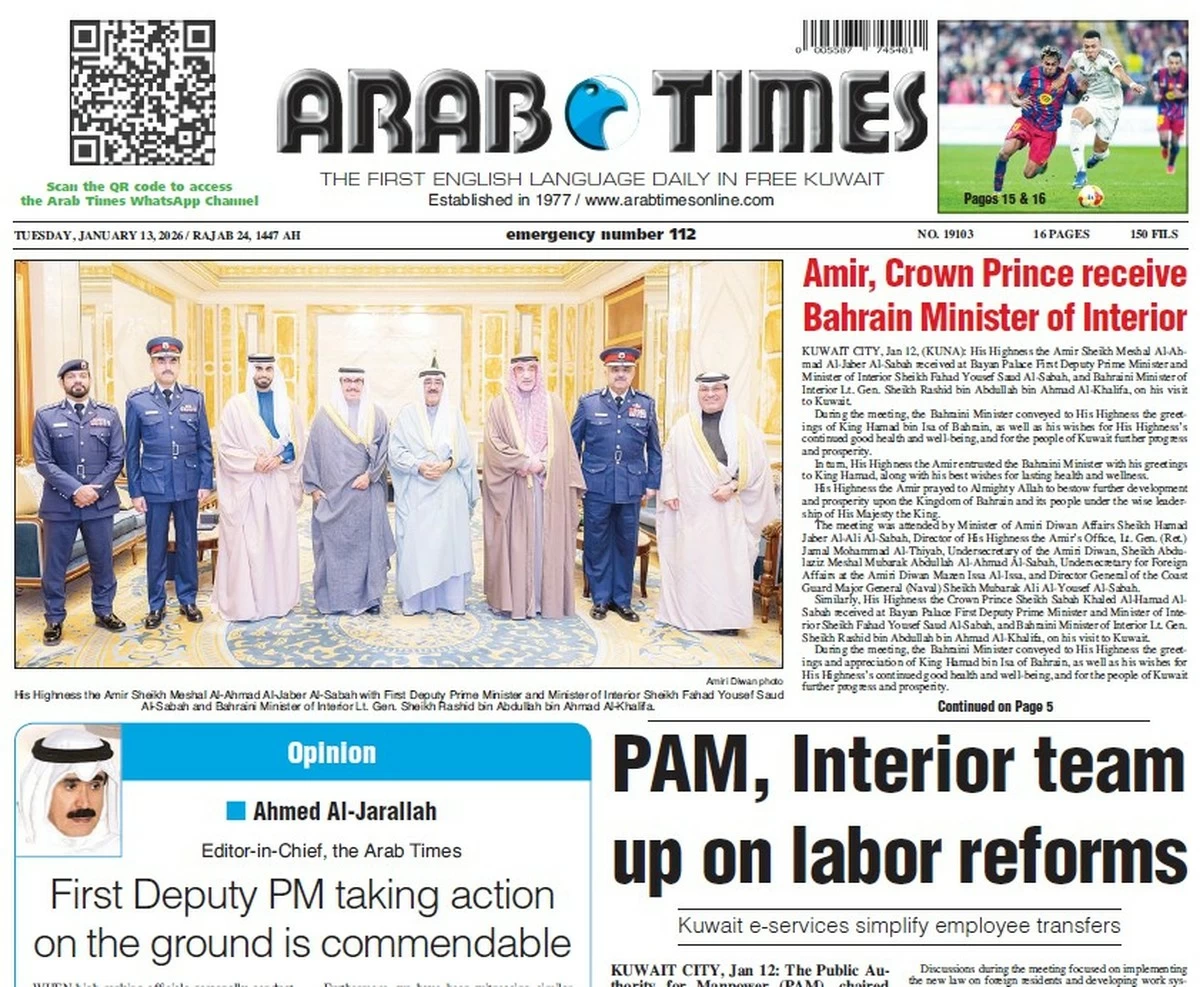27/11/2025
27/11/2025

KUWAIT CITY, Nov 27: Kuwait has made significant advances in organ transplantation and now stands among the leading countries in the region, Minister of Health Dr. Ahmad Al-Awadhi said on Wednesday, as the country hosted the 19th Congress of the Asian Society of Transplantation (CAST) for the first time.
Opening the four-day conference, Dr. Al-Awadhi said Kuwait began its kidney transplant program decades ago and recently launched a heart transplant program. Liver and lung transplant services are expected to begin in the coming months, marking a new phase in the nation’s medical capabilities.
He stressed that organ transplantation represents “an investment in life itself,” describing it as a transformative moment that bridges “the reality of suffering” and a renewed future in which patients regain “energy, smiles, and hope.” The minister noted that demand for transplant services is growing across the Gulf and Middle East, adding that the challenge lies not in medical expertise — where national cadres demonstrate high competence — but in legislative, cultural, and regulatory barriers that require broader community awareness and improved frameworks.
Dr. Al-Awadhi highlighted the Ministry of Health’s commitment to further developing this field through dedicated budgets, including Ministerial Decree No. 371 of 2023, and praised Cabinet support reflected in Decree No. 677 of 1999 and its amendments. Kuwait, he added, continues to expand transplant programs, invest in training and scientific research, and strengthen cooperation with regional and international partners, including through a memorandum of understanding with the United Arab Emirates.
Conference chairman Dr. Mustafa Al-Mousawi said the Asian continent — the world’s largest and most populous — faces a substantial need for organ transplantation to save thousands of patients annually. While Asia performs strongly in living donor transplants, deceased organ donation remains far below global standards, he noted. The conference aims to address organ shortages and deliver the latest advancements in transplantation to specialists, especially younger practitioners, through more than 300 lectures and scientific workshops.
Asian Society of Transplantation President Dr. Maggie Ma said the biennial conference offers a vital platform for professionals to access cutting-edge technologies and share knowledge. She pointed to Asia’s vast potential for progress, noting that registered organ donations and transplants in the continent now exceed those in Europe and the Americas. Still, she said, challenges persist, particularly low donation rates and continued dependence on living donors.
Dr. Turki Al-Otaibi, head of the conference’s scientific committee, reaffirmed Kuwait’s dedication to expanding its deceased donor program, enhancing multi-organ transplantation services, training future specialists, and developing national and regional registries. He noted that Kuwait performed its first kidney transplant in 1979 and later became one of the region’s first countries to establish a national deceased donor program. Over the decades, he added, Kuwait has strengthened its living donor initiatives and built strong capabilities in immunology, tissue matching, and organ retrieval.
The conference is hosting around 700 participants and 100 speakers from 28 countries across Asia, the Middle East, Europe, the Americas, and Canada. Sessions cover advances in kidney, liver, heart, and lung transplantation, as well as emerging technologies such as artificial intelligence and surgical robotics, along with discussions on related ethical and religious issues.


